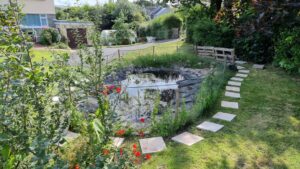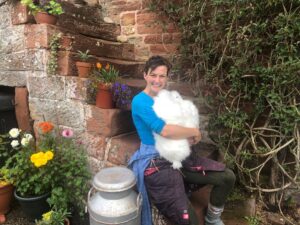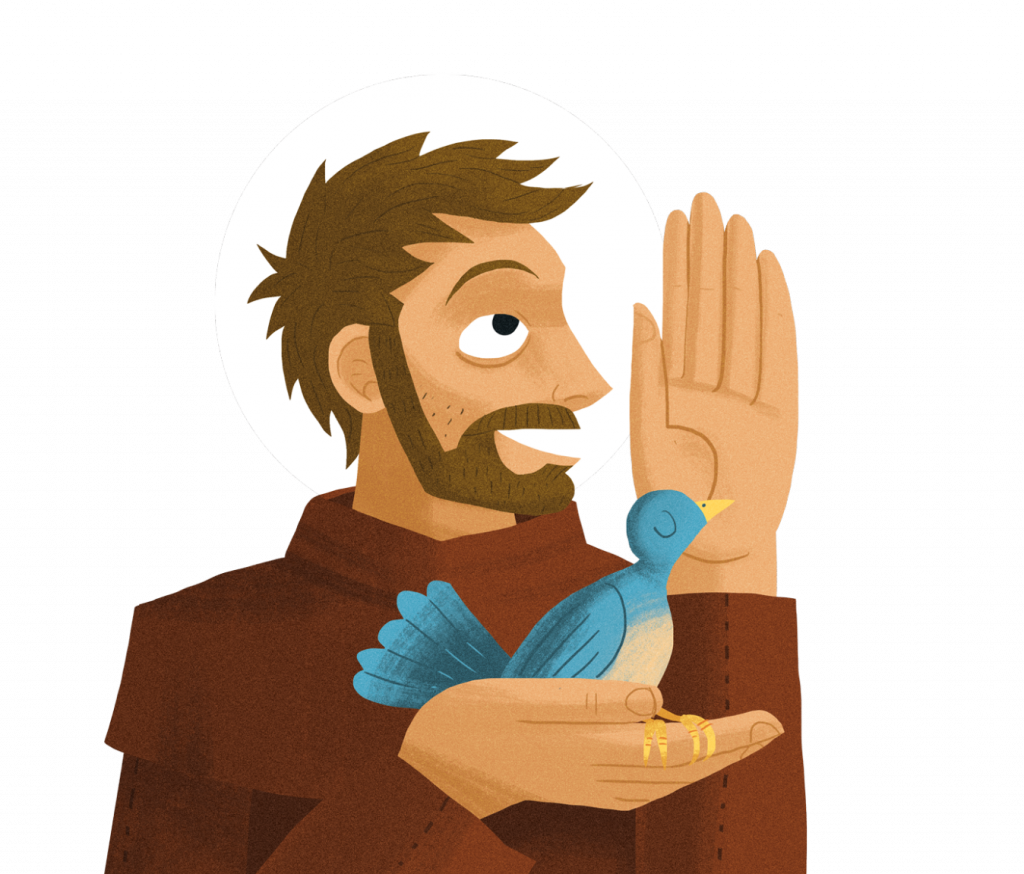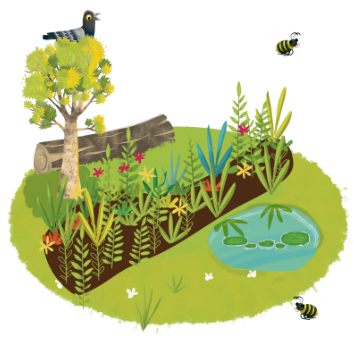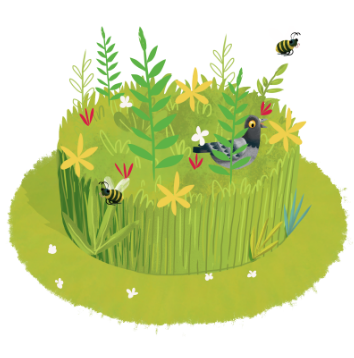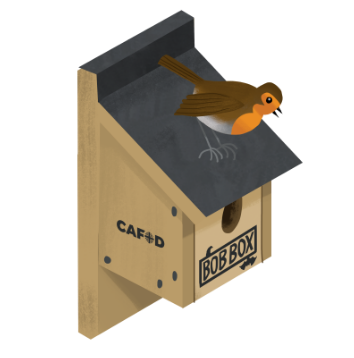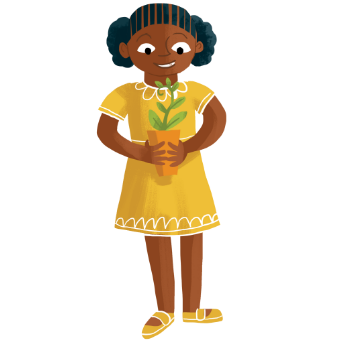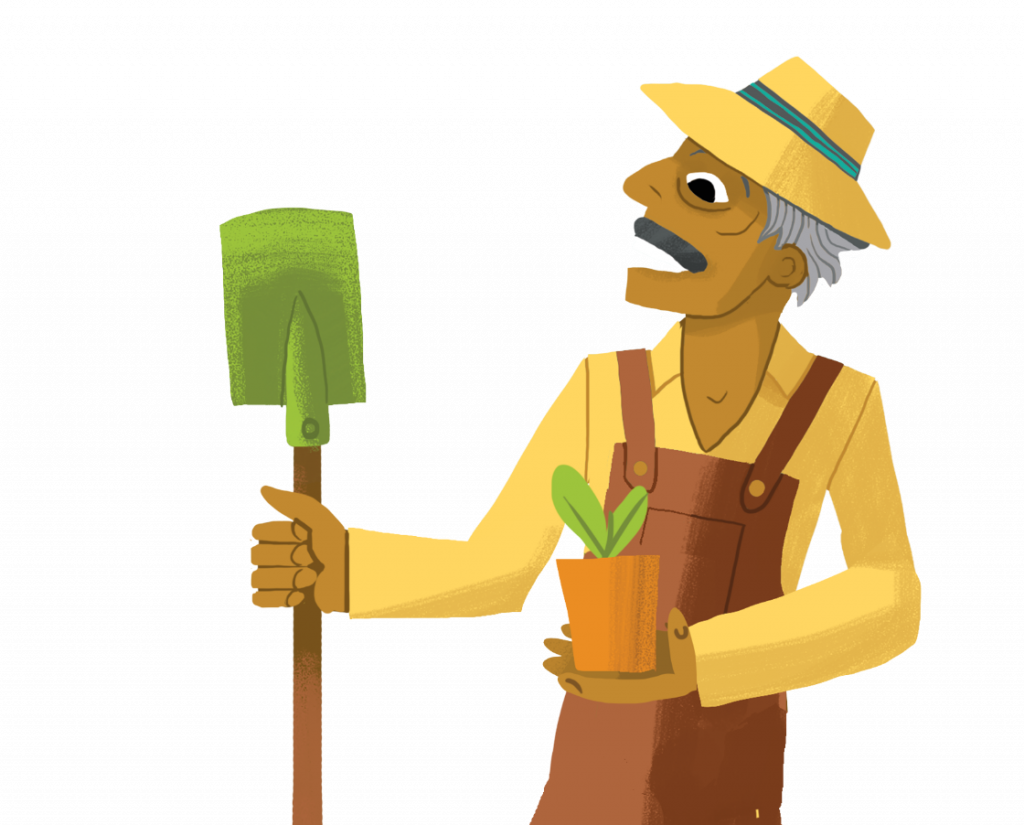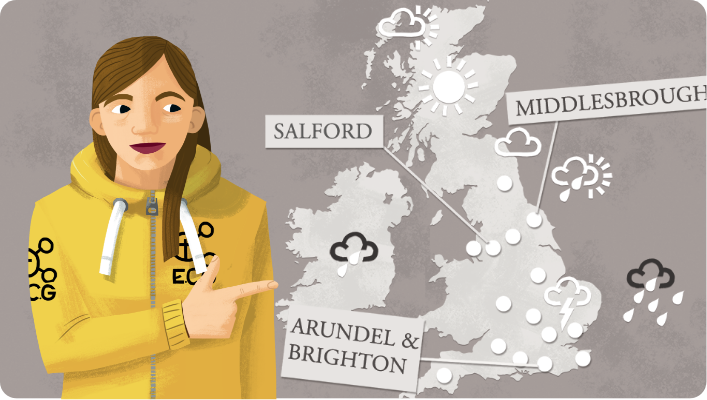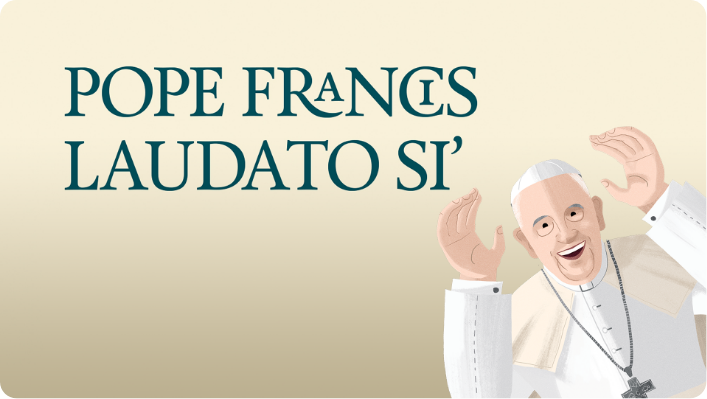
An introduction to Wildlife Gardening

We asked Dr Sarah Gardner to set the scene on our biodiversity crisis and how our humble churchyards can welcome back wildlife.
THE SITUATION
For millennia, humans, plants and animals have existed together, not in harmony, but in equilibrium. However, animals and plants are dying at an unprecedented rate within human history. Of the 8 million species of life on earth [i], up to 1 million are facing extinction, many within the coming decades [ii]. This current era of extinction loss due to human activity has been named the Anthropocene [iii]. All species are affected, from mammals, birds and fish, to insects, plants, corals and fungi.
It is easy to believe that this accelerated biodiversity loss is restricted to parts of the world being actively ripped apart, like the Amazon, but over 400 species are at risk of extinction here in the UK [v]. According to the 2019 UK State of Nature report, hedgehog numbers have declined by 95% since the 1950s, and in the same timeframe, the common toad has declined by 68%, and turtle doves by 98% [iv].
These UK species are declining because of the way we humans have treated their environment. Our industry, urbanisation and agriculture have polluted and destroyed wildlife habitats like rivers, hedgerows, woodlands, wetlands, peatlands, wildflower meadows. Pesticides, industrial waste and domestic waste that we have released into our roads, railways, weirs and power lines have poisoned and obstructed species from moving between breeding and feeding grounds. In addition, climate change is affecting the life-cycle and distribution of many species. For instance, since the 1990’s many species of birds, butterflies and moths have moved 18km north each decade, seeking more suitable habitats to live and raise their young [vi].
Creatures are going extinct because of us. As we consume more food, water, land, energy, we deprive other species of their share of resources. Our overconsumption generates waste, pollutes oceans, contaminates land, changes climate and degrades the diminishing resources we have left. The average consumption for a person in North America is almost 4 times larger than that of a person in India, central or eastern Africa. For the UK, the difference is almost 3 times [vii]. As the demand for resources in industrialised nations increases, fewer resources are left for our neighbours in less developed countries, for indigenous peoples, for the vulnerable, poor and other living creatures and plants. As Pope Francis says, our lifestyle choices are a matter of social justice, and can have a huge impact; “in debates on the environment, [we need] to hear both the cry of the earth and the cry of the poor” [#49].
Loss of wildlife species and habitats affects us too. Time spent outside, exploring, working or relaxing with nature helps both our physical and mental well-being [viii]. We benefit from nature because, as Pope Francis reminds us “our lives are interconnected with it” [#16]. Trees and green spaces reduce heat and pollution in our towns and cities, with a recent study from the USA revealing that neighbourhoods with few trees were more than 10 degrees hotter than other, tree-rich neighbourhoods [ix]. The poor usually live in tree-deprived urban areas, carrying the burden of extra heat and pollution and the increased risk of respiratory disease and hospitalization. The plight of the earth and the plight of the poor are directly and inextricably connected.

WHY IS IT IMPORTANT?
As humans, we depend on nature for our survival. Animals and plants provide us with food, medicine, clothing, energy, shelter and transport. Life works together in a delicate balance, providing ecosystem services essential to life on earth. When ecosystems function healthily and properly, oxygen is produced, carbon is sequestered, climate and water supply are regulated, waste is broken down, nutrients are recycled, soil is constructed, crops are pollinated, and flooding and sea surges are reduced. Through our lifestyles and consumption and production practices, humans have disrupted this fragile equilibrium, tipping the scales towards biodiversity loss and ecological collapse.
Pope Francis reminds us that each creature “has its own purpose [#84]… reflect[ing] in its own way a ray of God’s infinite wisdom and goodness” [#69]. We are called to care for God’s creatures, a practice through which we learn also to care for our fellow human beings [#91]. Pope Francis directs us to the teachings of St Francis of Assisi, specifically to remember that “human life is grounded in three fundamental and intertwined relationships: with God, with our neighbour and with the earth itself” [#66].
Our faith and our survival push us to care for and conserve the creatures around us. Just as many plants need bees and butterflies to facilitate plant reproduction; we too need them to pollinate our food crops. We need to monitor carefully the changes happening in the world around us. The loss of plants and animals indicates that our climate and our environment is changing. Their hunger, decline and migration are indicators of what will come to us unless we change course. Our lives are interwoven with the creatures with whom we share this planet.
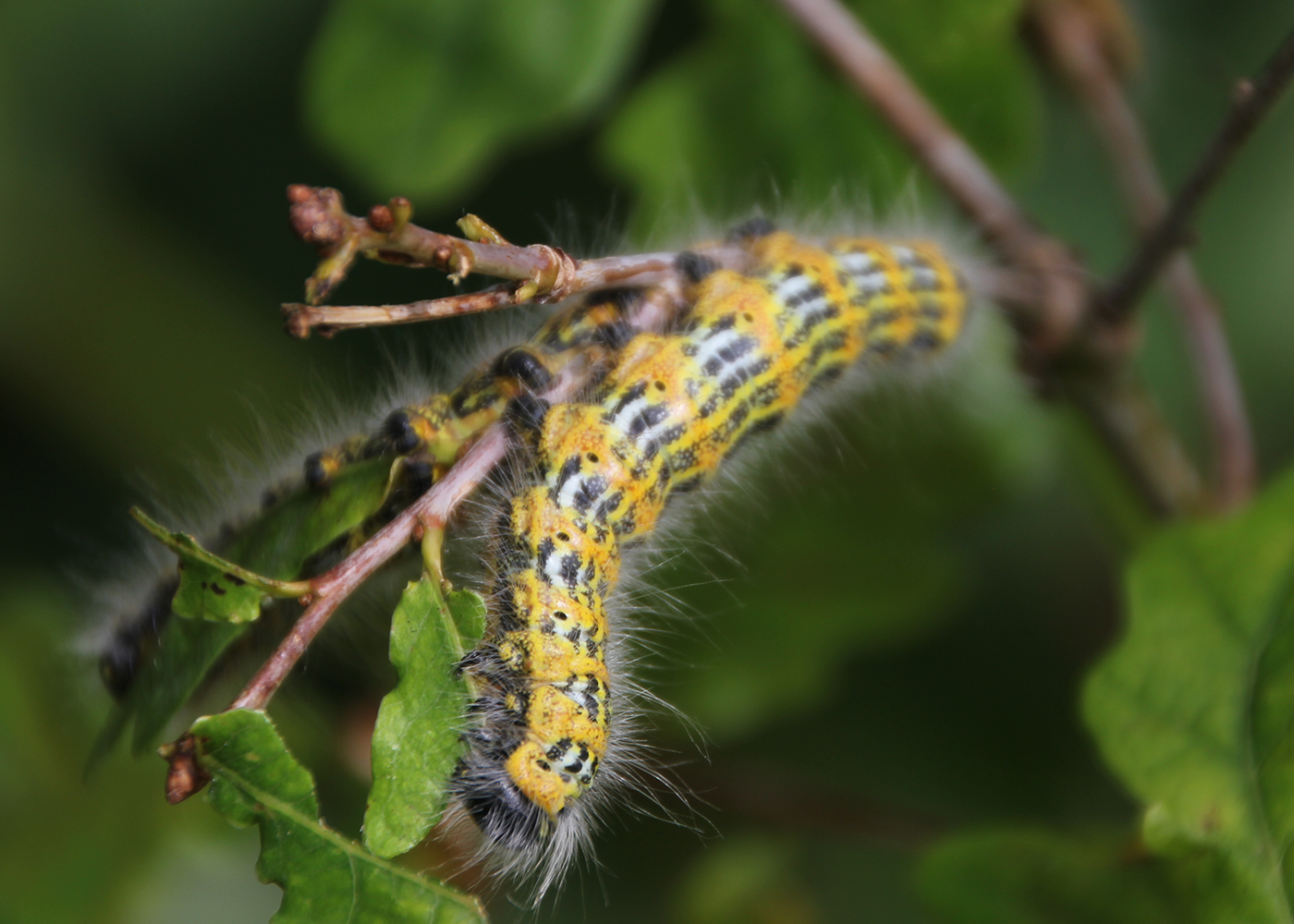
WHAT WE CAN DO
” (St) Francis asked that part of the friary garden always be left untouched, so that wild flowers and herbs could grow there, and those who saw them could raise their minds to God, the Creator of such beauty.”
Pope Francis, Laudato Si’ [12]
How can we reconnect with nature?
We can take the first step by literally creating homes and food sources for wildlife in our Parish. Churchyards and burial grounds are known to be potential havens for biodiversity, especially if parts are left unmown for flowers to set seed and animals to forage in [x]. Even if the space outside your church is small, perhaps there is an abandoned flowerbed, a patch of bare ground or a wall (for climbers or hanging gardens – see below) that might just suit some wildflower seeds or plants for insect pollinators. Every small act can help – even a pot of sunflowers can make a difference to bees, butterflies and birds. The creatures you attract may only be small in size but they are the foundation of the food web on which we and all other species depend.
There are many simple actions that you can do to enhance the outside space for wildlife in your Parish: Plant flowers for pollinators, or berry, fruit and nut-bearing shrubs and trees for small mammals and birds; pile up logs or leaves or create a compost heap for winter hibernation; create a pond; hang up bird-feeders, nest boxes or bee hotels; or create passageways for wildlife to move easily between the church ground and neighbouring gardens. All these actions help restore the food sources, shelter and nesting sites that have been lost to wildlife by our treatment of the UK environment. To see how you can take action to encourage and enhance the wildlife in your parish, check out the Wildlife Gardening projects below.
Actions that benefit wildlife benefit us too. The bees and butterflies we attract pollinate our plants and vegetables, and the homes we create for hedgehogs, toads, birds and predatory insects maintain a population hungry for the slugs and snails, aphids and caterpillars that can ravage allotment crops. As all life is interconnected, to care for wildlife is, in a way, to care for ourselves, and what better way is there to practise self-love than to plant sunflowers or to pile up logs?
However, wildlife-enhancing activities must be undertaken with care, for it is a delicate balance that we have been tampering with, and thus a delicate balance that we must work with, not against, to restore. For instance, filling pots and flowerbeds with peat-based compost directly depletes UK and global peatlands – an increasingly rare habitat and one critical for storing carbon to limit global warming. When nettles and thistles invade the carefully sown wildflower bed, remember that butterflies and bees love them; keep off the weedkiller and cut them by hand if absolutely necessary. Use hand tools and manual machinery wherever you can – a broom is just as effective as a leaf-blower and far less air and noise polluting. Remember that our actions and consumption choices are some of the most powerful tools we as individuals have in combating species loss and damage to our environment. As Pope Francis says “Many things have to change course, but it is we human beings above all who need to change” [#202], in particular by “cultivating sound virtues that … promote community, the common good and care for the environment [#211 & 232].
Photos copyright John Paul de Quay
About the Author
Sarah is passionate about finding ways to reconcile conflict between human and environmental needs. In Laudato Si’, Pope Francis makes clear the connections between human consumptive behaviour, the state of our planet and the plight of the poor. Sarah is pleased to help in promoting his message. Sarah is an ecologist and environmental economist. Originally from a family of hop-growers, she has worked with farmers, land-managers and policymakers on farmland ecology and biodiversity conservation for over 30 years. She has a keen interest in sustainable farming systems and is painfully aware of how their sustainability and resilience can be undermined by retail and market practices purporting to act in the interests of the consumer. Sarah maintains her own ‘scruffy’ allotment and garden and revels in the insects and birds that visit it and the fruit, vegetables and flowers that she can coax to grow there. Happy gardening.
[i] species are different types of creature e.g fox, rabbit are different species
[ii] IPBES report 2019
[iii] https://www.nhm.ac.uk/discover/what-is-the-anthropocene.html accessed 7 July 2021
[iv] https://www.nhm.ac.uk/discover/news/2019/october/the-state-of-nature-41-percent-of-the-uks-species-have-declined.html accessed 7 July 2021
[v] UK State of Nature Report 2019
[vi] Ibid footnote 5
[vii] consumption measured by Ecological Footprint, see Living Planet Report 2020: https://livingplanet.panda.org/en-gb/ accessed 7 July 2021
[viii] https://www.mind.org.uk/media-a/2931/nature-and-mental-health-2018.pdf accessed 03 September 2021
[ix] https://www.nationalgeographic.com/environment/article/-in-california-extreme-heat-and-ozone-pollution-hit-poor-communities-hardest accessed 03 September 2021
[x] https://www.caringforgodsacre.org.uk/resources/biodiversity/ accessed 02 September 2021
# Laudato Si’









